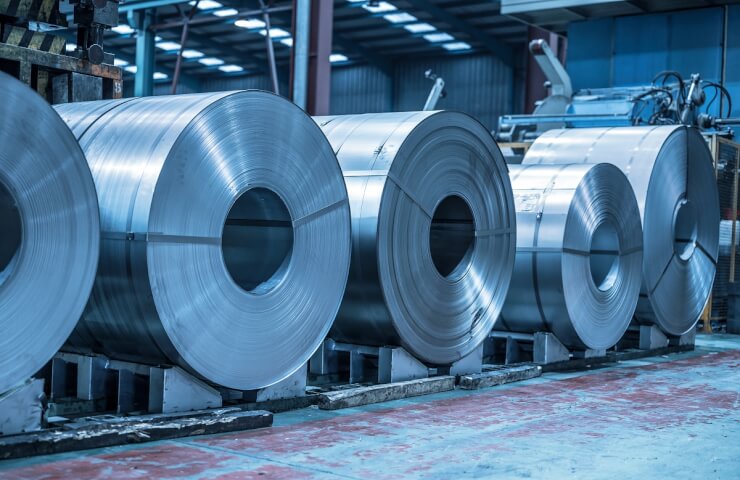In early September, Steel Dynamics asked the Department of Commerce (DOC) and the U.S. International Trade Commission (ITC) to apply anti-dumping duties on corrosion-resistant flat-rolled steel (CORE) from Australia, Brazil, Canada, Mexico, the Netherlands, South Africa, Taiwan, Turkey, UAE and Vietnam. She also called for the imposition of countervailing duties on CORE imports from Brazil, Canada, Mexico and Vietnam.
Deadlines for the publication of preliminary countervailing and anti-dumping investigation findings are November 29 and February 12, respectively.
Changes in supply dynamics
The named countries accounted for 84% of all galvanized steel imports sent to the United States in the first half of 2024. The trade coincides with the start of new in-house capacity for both galvanized and galvanized steel. SDI, which led the petition, has increased production at its plant in Sinton, Texas. Nucor and US Steel, the other two applicants, have announced similar intentions at their sites.
However, there is no consensus among American steelmakers about the need to impose anti-dumping and countervailing duties against all 10 countries listed in the petition. US Steel, Wheeling Nippon and the United Steelworkers Union (USW) are not joining the lawsuits against Canada. Nucor, meanwhile, has not filed a claim against Mexico.
The estimated dumping margins for each country are Australia (48.42%), Brazil (75.70%), Canada (35%), Mexico (34 .16%), Netherlands (15.60%), South Africa (51.99%), Taiwan (67.90%), Turkey (16.39%), United Arab Emirates (77.68%) and Vietnam ( 158.83%).
In a September study, U.S. market respondents reported that since the petition was filed, they had become increasingly reluctant to purchase materials from the countries listed in the petition.
U.S. steelmakers say some overseas producers are benefiting from government subsidies. This supposedly gives them a cost advantage when they sell their surplus material into the country - at the expense of domestic producers.
The US Election Effect
Increasing protectionism has become a feature of the run-up to the November 5 presidential election . Both the Democratic and Republican parties' campaigns emphasized the "America First" agenda. Promises have been made to limit foreign influence in U.S. manufacturing, and steel shipments are no exception.
Carbon and alloy hot-dip galvanized sheet and strip imported into the U.S. are up 41% year-on-year, according to the International Trade Administration. calculated for the first seven months of 2024. Imports from Vietnam, Turkey, Taiwan and the Netherlands posted triple-digit percentage growth over the period.
U.S. steel producers would welcome any additional protectionist measures. This will complement Section 232 legislation and recently increased tariffs imposed on Chinese imports under Section 301 regulations. Domestic prices for galvanized steel are likely to increase as tariffs and duties reduce the attractiveness of imports.
End users in the automotive, household and construction segments may argue that increased restrictions on steel imports only protect part of the supply chain. Without low-cost competition, purchasing options will be more limited. Downstream manufacturers, facing higher production costs as a result of rising steel prices, may face increased competition from lower-cost foreign products.
The analysis found modest price increases for U.S. coil products in this month. The current spread between hot rolled and value-added material such as cold rolled and galvanized coil is wider than historical norms. This price gap is likely to widen further depending on the extent of trade action against galvanized steel imports.




